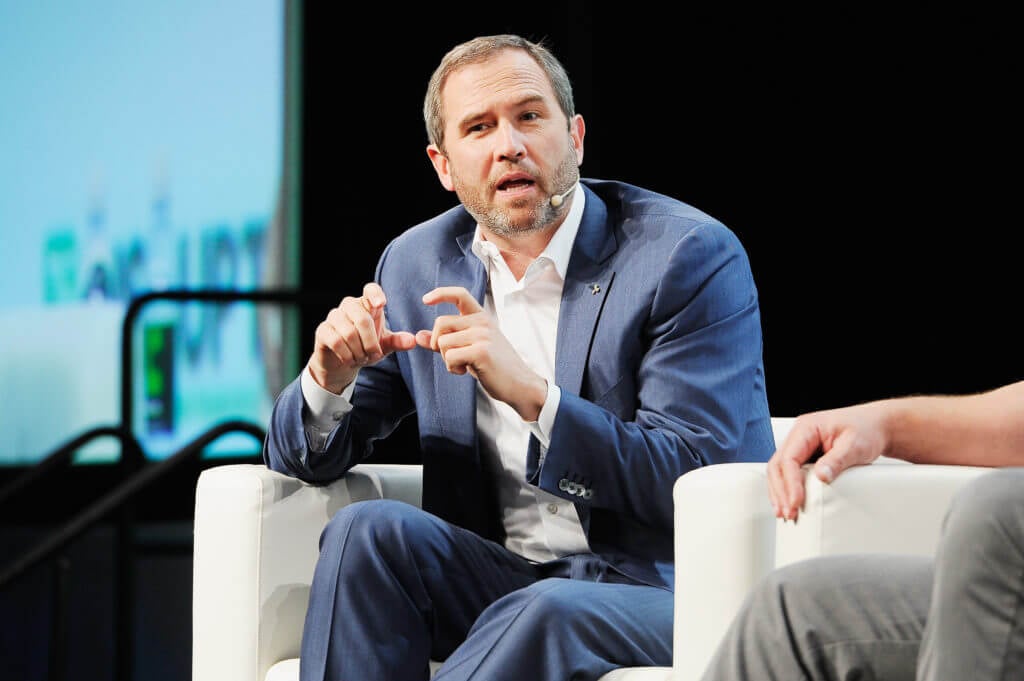XRP is ‘Very Clearly Decentralized’: Ripple CEO Brad Garlinghouse

Ripple CEO Brad Garlinghouse claims that XRP is "very clearly decentralized," but many others disagree. | Source: Steve Jennings/Getty Images for TechCrunch
When Securities and Exchange Commission (SEC) Division of Corporation Finance Director William Hinman gave his opinion this summer that ether — the native asset of the Ethereum platform — was not a security under federal law, he listed among his justifications the fact that, although ether was originally distributed through a token sale, it has become substantially decentralized in the years since its network launch.
Since then, supporters of XRP, the third-largest cryptocurrency, have sought to demonstrate that the token — colloquially referred to as “ripple” due to its close association with the blockchain startup of the same name — is sufficiently decentralized to evade the security classification as well.
Ripple CEO Brad Garlinghouse made this argument in a recent interview with financial news outlet Cheddar. Garlinghouse, who was speaking on the sidelines of the Ripple-sponsored industry conference “Swell” in San Francisco, said that he believes XRP is “very clearly decentralized.”
“Is XRP centralized or decentralized? It is very clearly decentralized. I, as CEO of the company, can’t control the XRP ledger. I can’t change a transaction,” he said. “Anybody can participate in the XRP ecosystem, and if Ripple does something that is not in the best interest of the ecosystem, the rest of the ecosystem can ignore us.”
Echoing claims made in a recent post by Ripple CTO David Schwartz, the former Yahoo! Executive further alleged that XRP is actually more decentralized than bitcoin and ethereum since mining hashpower for these and other Proof-of-Work (PoW) cryptocurrencies tends toward centralization within a small number of mining pools.
But while bitcoin mining may be geographically centralized, critics allege that XRP ownership is even more centralized, as — even after selling XRP tokens for several years — Ripple still owns a majority of the cryptocurrency’s total supply (the firm recently placed its holdings in escrow, which are meted out on a monthly basis). They also claim that — irrespective of whether one agrees with Ripple’s attestation that it did not create XRP — there is no denying that Ripple and its founders received owned 100 percent of the XRP tokens (then also called “Ripple Credits”) when the network launched.
Perhaps alluding to those claims, Garlinghouse said that critics have an “economic interest” in spreading misinformation about Ripple and XRP, and he alleged that Ripple’s relationship with XRP is similar to Amazon’s investment in the communications protocols that undergird the internet.
“I think there’s a lot of people out there that are fighting ‘holy wars,’ and they’re spreading misinformation…because they have an economic interest,” he said. “Ripple is a centralized company investing in a decentralized technology, in the same way Amazon was investing in TCP/IP, in some ways.”
“The facts will set you free,” he added.
Featured Image from TechCrunch/Flickr